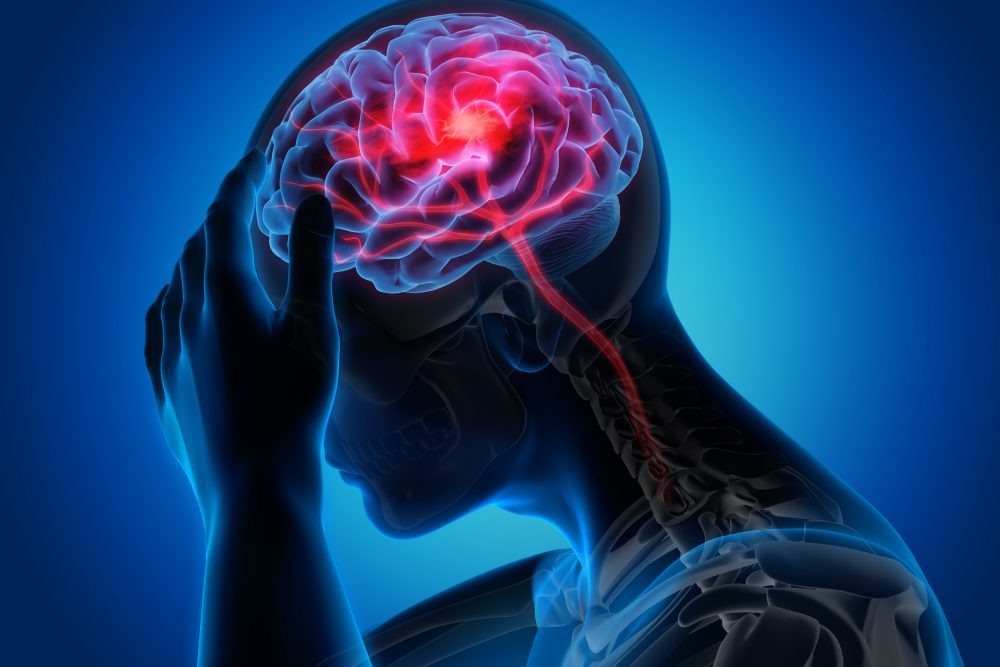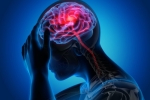
Migraine involves intense, throbbing headaches, often accompanied by nausea, vomiting, and extreme sensitivity to light and sound. These headaches are never pleasant, but if they occur almost daily, they can seriously disrupt your life.
If you experience 15 or more headache days each month, you’re likely dealing with chronic migraines. About 2.5 percent of people with episodic migraine transition to chronic migraines every year.
You don’t have to settle for living most of your days in pain. Bring these questions to your doctor so you can get started on treatment to reduce the frequency and intensity of your symptoms.
Why do I get so many headaches?
The exact cause of migraine headaches is unclear, but genetics and environmental factors may play a role.
Most people with migraine have the episodic kind, meaning they get headaches less than 14 days each month.
In a small number of people, the number of migraine days gradually increases. Your doctor will diagnose you with a chronic migraine if you’ve had these headaches for 15 or more days a month for at least three months.
A few factors can make you more likely to develop a chronic migraine, including:
- Obesity
- Depression
- Anxiety
- Other pain disorders
- Extreme stress
- Overusing your pain medications
- Snoring
What triggers my migraines?
Everyone’s migraine triggers are a little different. For some people, a lack of sleep sets off their headaches. Others get them from eating processed foods.
Here are some common migraine triggers:
- Hormonal changes
- A lack of sleep or too much sleep
- Hunger
- Stress
- Strong smells
- Bright lights
- Loud noises
- Food additives like MSG or aspartame
- Alcohol
- Weather changes
To help your doctor pinpoint your triggers, keep a diary of your symptoms. Write down what you were doing right before each migraine started. Share your diary with your doctor at each visit.
Could my migraines be a sign of something serious?
Constant severe headaches could make you fear the worst-case scenario, like a brain tumor. But in reality, headaches are rarely a sign of a serious condition, especially if they’re your only symptom.
Symptoms that can be a sign of a serious condition include:
- Uncontrolled vomiting
- Seizures
- Numbness or weakness
- Trouble speaking
- Stiff neck
- Blurred or double vision
- Loss of consciousness
If you experience any of these along with your headaches, call 911 or get medical help as soon as possible.
Why do my vision and hearing change before a migraine?
These changes are called migraine aura. They’re a collection of sensory symptoms that some people experience just before a migraine. You may see zigzag patterns in your vision, hear strange noises, or feel unusual sensations like tingling in your body.
The aura may stem from changes to brain cells and chemicals. About 20 to 30 present of people with migraines gets aura right before their headache. These symptoms usually subside in about an hour.
Should I see a migraine specialist?
You may only be seeing your primary care doctor for migraine management. But if you’re experiencing migraines more often and it’s impacting your daily life, you may want to start visiting a specialist.
A neurologist can complete a detailed exam to rule out other possible causes of your headaches. Then, you can get started on treatment to help reduce the frequency of your migraine attacks.
What medications can prevent my migraine attacks?
Preventive treatments can help stop your migraines before they start. You can take these medications every day.
Some of the medications for chronic migraine treatment include:
- Beta-blockers
- Angiotensin blockers
- Tricyclic antidepressants
- Anti-seizure drugs
- Calcium channel blockers
- Calcitonin gene-related peptide (cgrp) antagonists
- Onabotulinum toxin a (botox)
Your doctor can recommend one of these depending on how severe and frequent your migraines are.
What treatments can stop my migraines once they start?
Other drugs relieve migraine pain once it starts. You can take these medications as soon as your symptoms begin:
- Aspirin
- Acetaminophen (tylenol)
- Nsaids such as ibuprofen (advil, motrin)
- Triptans
- Ergots
Discuss your options with your doctor to see which option would work best for you.
Can lifestyle changes like diet or exercise help?
Medication isn’t the only way to tackle migraines. Once you identify your triggers, lifestyle changes can help you avoid and prevent migraine attacks.
- Get a good night’s sleep. Sleep deprivation is a common migraine trigger. Go to bed and wake up at the same time every day to get your body used to a routine.
- Don’t skip meals. Blood sugar drops can set off migraines. Eat small meals and snacks throughout the day to keep your blood sugar steady.
- Stay hydrated. Dehydration can also lead to headaches. Drink water or other fluids throughout the day.
- Practice relaxation techniques. Try deep breathing, yoga, meditation, or massage to relieve stress.
- Avoid foods that are triggered. Processed meats, MSG, caffeine, alcohol, and aged cheeses can all lead to migraines.
What supplements relieve chronic migraines?
A few supplements have been studied as an alternative approach to migraine treatment, including:
- Magnesium
- Feverfew
- Riboflavin
- Coenzyme q10 (coq10)
There’s some evidence that this helps but check with your doctor before you try any supplement. Some of these products can cause side effects or interact with other medications you take.
Experiencing migraine attacks for half a month or more isn’t normal, and could mean you have chronic migraine. Your symptoms are preventable and treatable; so make sure you bring up all of your concerns with your doctor.
Precision Pain Care and Rehabilitation has two convenient locations in Richmond Hill – Queens and New Hyde Park – Long Island. Call the Richmond Hill office at (718) 215-1888, or (516) 419-4480 for Long Island office, to arrange an appointment with our Interventional Pain Management Specialist, Dr. Jeffrey Chacko.













